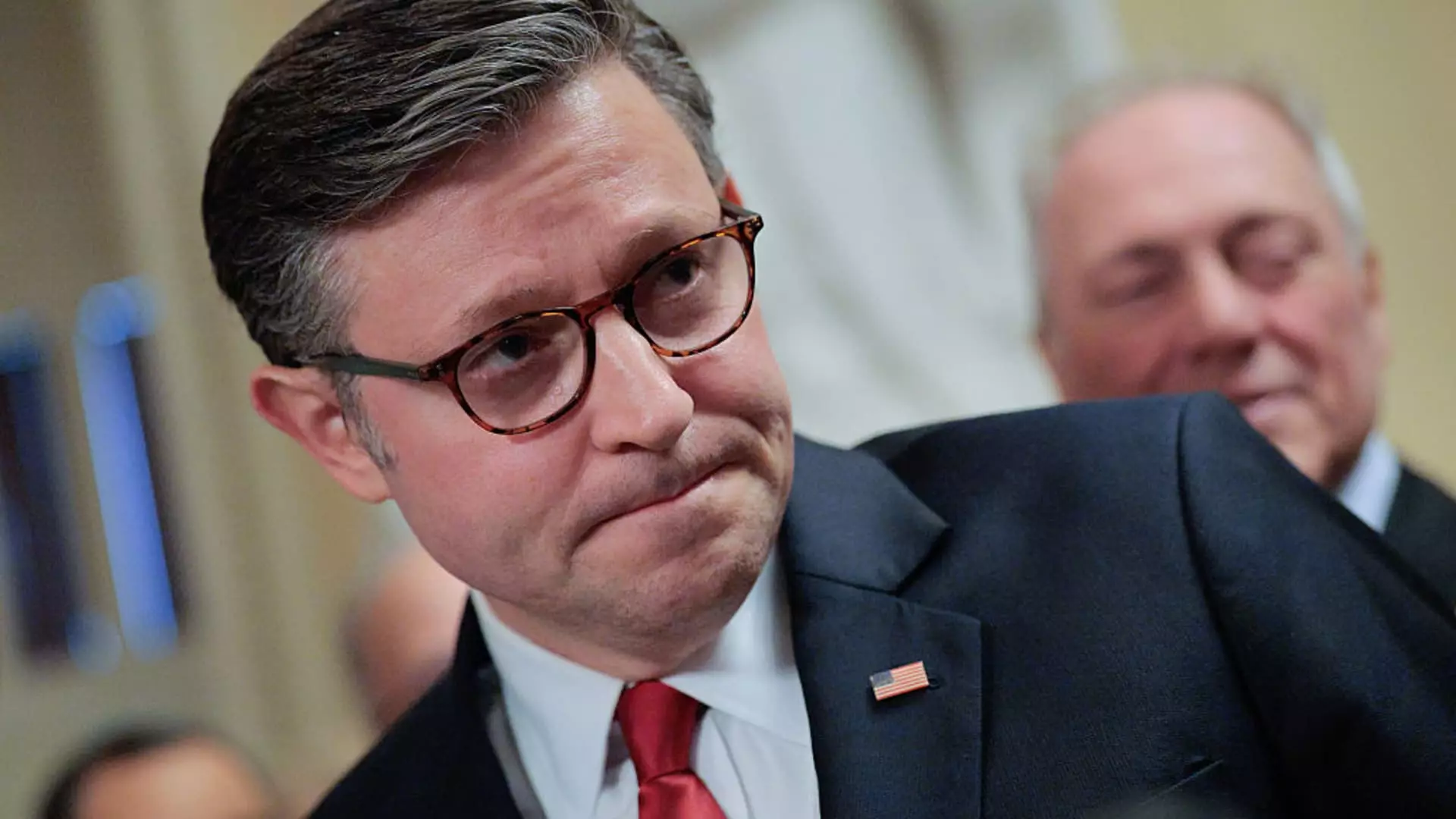The recent maneuvering within the U.S. House of Representatives exposes the deep fissures and power struggles characteristic of modern American politics. While the chamber’s narrow vote—219-213—marks a procedural win for Republicans aligned with President Trump’s agenda, it also reveals the fragility of party unity and the difficulty of passing sweeping legislative packages in a polarized environment. Behind the scenes, intense negotiations, coalition-building, and internal conflicts dictated the outcome of a process that was anything but smooth. This spectacle underscores how party discipline is increasingly a fragile construct, often tested by ideological divides and personal loyalties.
House Speaker Mike Johnson’s triumph in rallying his party to advance the bill illustrates the importance of strategic negotiations and political patience. Yet, the victory is tinged with tension, as a handful of Republicans defected, risking the perception of an already fragile majority. Such internal dissent suggests that even within the so-called conservative camp, there is waning consensus on the policy specifics, especially regarding issues like welfare, taxation, and social safety nets. The drama, thus, is not merely procedural but reflects a deeper contest over priorities and values that divide the GOP.
Meanwhile, Democratic opposition’s unified stance against the bill highlights the contrasting visions for America’s future. Critics are vocal about the disproportionate benefits for the wealthy and the potential erosion of vital social programs. The narrative they push—that the bill favors billionaires and leaves millions vulnerable—is a rallying cry aimed at preserving a social safety net for the most vulnerable. This opposition underscores a core ideological divide: should economic policies disproportionately favor the elite, or should social cohesion and equity be prioritized?
Policy Implications and the Future of Social Welfare
The legislation at hand is more than a mere budgetary maneuver—it is a statement of priorities that will shape the socio-economic landscape for years to come. Extending the 2017 tax cuts, increasing border security funding, and slashing health insurance and nutrition programs strike at the fabric of American social policy. For advocates of social justice and economic fairness, these measures threaten to deepen inequality and undermine the social contract that has historically undergirded American democracy.
The proposed bill’s potential to reduce health insurance access for 17 million Americans, as claimed by critics, raises fundamental questions about the nation’s commitment to healthcare as a human right. It exposes a stark choice: should the government prioritize austerity and corporate interests, or should it invest in the well-being of its citizens? While proponents argue that these changes will promote economic growth and fiscal responsibility, the underlying risk is a growing rift between the vested interests of the wealthy and the needs of ordinary Americans. The bill’s passage could cement a system where social safety nets are continually chipped away, leaving millions more exposed during economic downturns or personal crises.
On the fiscal front, the debate is equally contentious. The Senate’s decision to implement a $5 trillion debt limit hike—significantly higher than the House’s $4 trillion proposal—reveals conflicting visions about America’s borrowing capacity. While some see increased debt as necessary to fund critical investments, others warn it risks long-term economic stability. This discord reflects a broader ideological tension: whether to prioritize immediate fiscal expansion or to enforce fiscal discipline that might hinder future growth.
Reflecting on the Center-Left Perspective
From a centrist liberal standpoint, this legislative episode exemplifies the complex dance between pragmatism and principle. While the bill as it stands may not mirror a perfect policy ideal, it reflects a pragmatic approach toward governance amid a hyper-partisan landscape. The focus should be on balancing the pressing need for fiscal responsibility with social justice concerns, ensuring that vulnerable populations are not sacrificed on the altar of political expediency.
Progressive voices might argue that social safety nets are essential to ensuring upward mobility and economic stability, and that tax policies should reflect a commitment to reducing inequality. However, a center-left stance recognizes that compromise is often necessary in a divided government. The challenge lies in pushing for reforms that ultimately serve the broader public interest, rather than merely appease partisan allies or ideological extremes.
By scrutinizing these developments critically, it’s evident that America’s policymaking process is at a crossroads. The choices made in this legislative cycle have profound implications—shaping not only the economy but also the social fabric of the nation. Whether this bill finalizes as a step toward equitable growth or a setback for social progress depends on a nuanced understanding of these complex dynamics, paired with a steadfast commitment to fairness and shared prosperity.


Leave a Reply